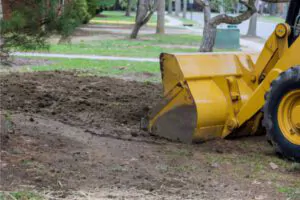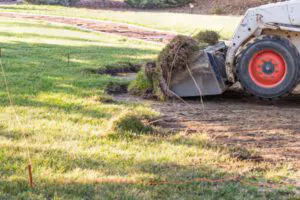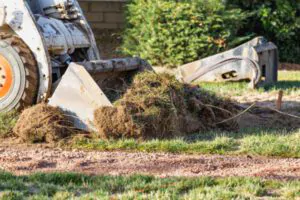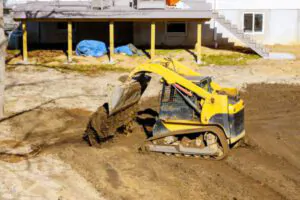
When it comes to crafting a stunning landscape, one of the fundamental processes that often takes center stage is land grading. This intricate art form involves reshaping the topography of a piece of land to achieve a level and even surface. Whether you’re preparing the ground for a new construction project or seeking to enhance the aesthetics of your outdoor space, mastering the techniques of land grading is essential.
What is Land Grading?

Land grading, simply put, is the process of altering the slope and contour of the land to achieve a desired surface level. It involves removing or redistributing soil to create a smooth and even surface that provides a stable foundation for construction, landscaping, or any outdoor project. This technique is not only essential for achieving aesthetic appeal but also for preventing erosion, drainage issues, and potential structural problems.
Different Categories of Land Grading
Land grading can be categorized into various types, each serving a specific purpose:
- Cut and Fill
This involves cutting down high points and filling in low points to create a balanced and level surface. It’s commonly used to prepare sites for construction or landscaping.
- Slope Grading
Slope grading adjusts the degree of slope on the land, catering to the needs of the project. It’s vital for proper drainage and preventing water accumulation.
- Fine Grading
Fine grading is a meticulous process that ensures a smooth finish, often required for turf installation or intricate landscaping.
How Land Grading Enhances Your Foundation

As the cornerstone of any construction venture, a solid foundation is paramount for the structural integrity and longevity of a building. This is where the art of land grading steps in, offering a transformative solution to ensure a level and stable base. Preparing the land for construction is not only about creating a visually even surface; it’s a strategic move to prevent potential structural problems.
- Leveling the Land for a Fresh Construction Venture
One of the primary applications of grading in landscaping is preparing the foundation for construction. A level and stable foundation are critical for the structural integrity of any building. By grading the land appropriately, you create a uniform surface that minimizes the risk of uneven settlement, which can lead to structural problems in the future. Additionally, proper grading ensures effective water drainage, preventing water accumulation around the foundation that could compromise its stability.
Land Grading Cost in 2023: What to Expect

As of 2023, the cost of land grading varies depending on factors such as the size of the area, the complexity of the terrain, and the specific grading techniques required. On average, you can expect to pay around $1,500 to $6,000 for a standard residential land grading project. However, it’s important to note that this is a general estimate and that prices can fluctuate based on location and specific project requirements. Consulting with professional grading contractors can provide you with a more accurate cost estimate tailored to your project.
Pros and Cons of Land Grading: Striking the Balance
Pros
- Foundation Preparation – Land grading creates a level base for construction, ensuring stability and longevity of structures.
- Effective Drainage – Proper grading facilitates efficient water runoff, reducing the risk of erosion and water accumulation.
- Enhanced Aesthetics – Grading can transform uneven landscapes into visually appealing, organized spaces.
- Property Value – A well-graded property is more attractive to potential buyers and can increase its market value.
- Preventing Erosion – Grading helps prevent soil erosion, safeguarding the landscape and nearby bodies of water.
Cons
- Overgrading Risks – Excessive grading can lead to erosion, drainage problems, and potential instability.
- Cost and Equipment – Land grading can be costly, involving heavy machinery and professional expertise.
- Ecological Impact – Grading disrupts natural ecosystems and habitats, impacting local flora and fauna.
- Time-Consuming – The process of grading can be time-intensive, delaying other landscaping or construction activities.
- Compromised Soil Structure – Improper grading can disturb the soil’s natural structure, affecting plant growth and stability.
Conclusion
Land grading is an essential practice in landscaping and construction that lays the foundation for a visually appealing and structurally sound outdoor space. By achieving a level and balanced surface, you not only prevent potential issues but also set the stage for a beautiful and functional outdoor environment.
As you consider land grading for your project, remember to evaluate the different types of grading, assess the specific needs of your venture, and factor in the cost considerations for the year 2023. Engaging with professional grading service can provide you with the expertise needed to execute this art form flawlessly.
Masonry Contractors of South Shore MA: Your Trusted Experts!
Looking for the best masonry construction, repair, or maintenance in the South Shore, MA area? You’ve come to the right place! Masonry Contractors of South Shore MA has the most updated tools and equipment to perform difficult tasks such as masonry construction and more! Reach us today and get a free quote!





